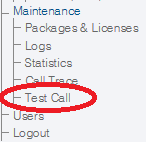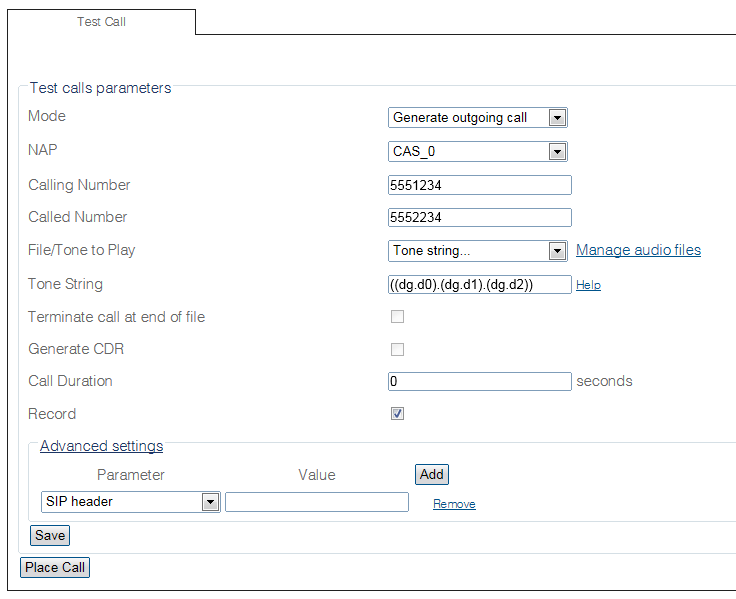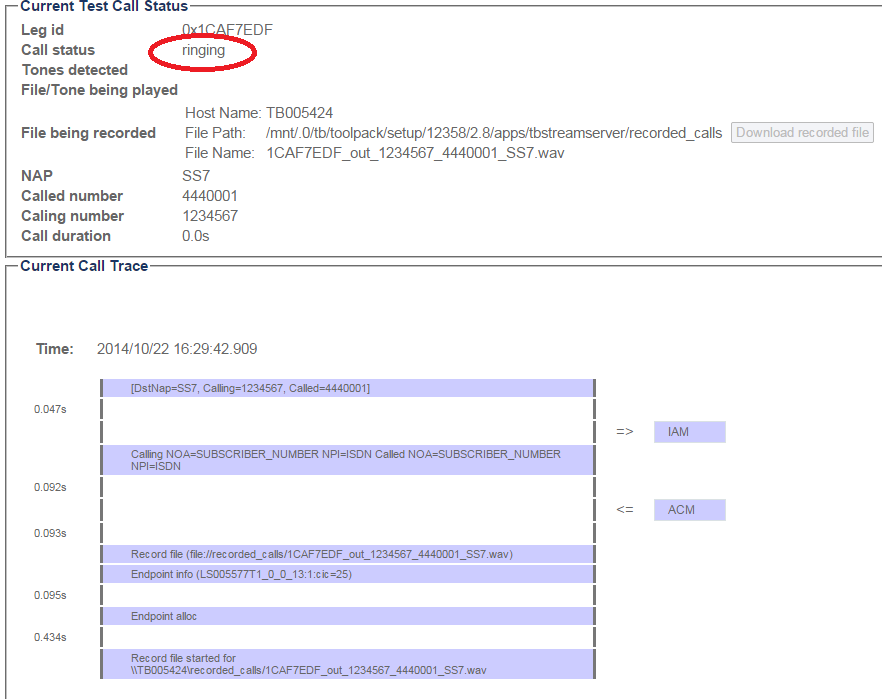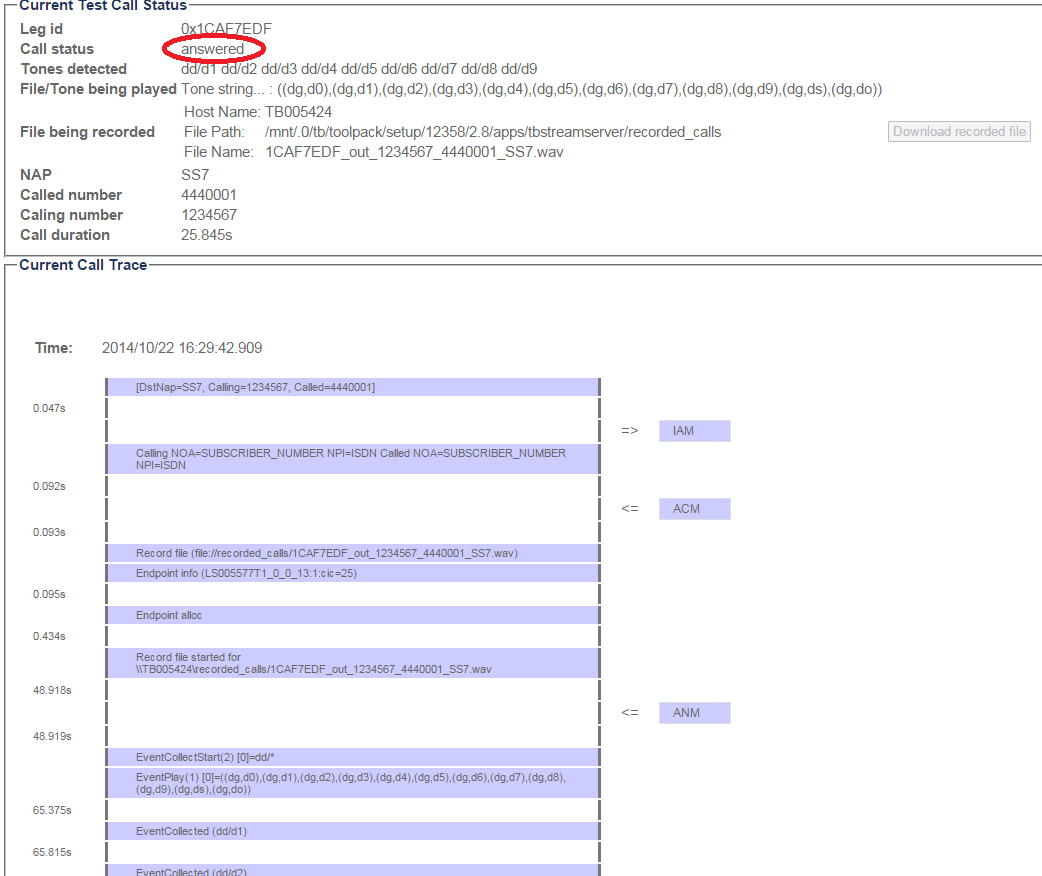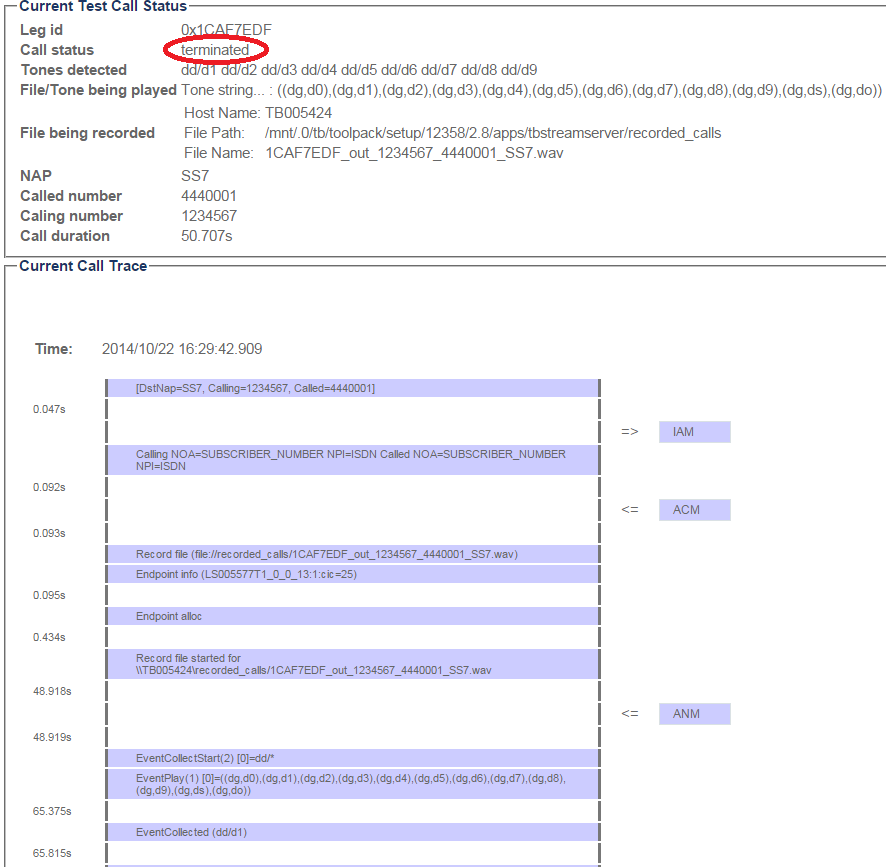Creating A Test Call B
From TBwiki
(Difference between revisions)
m |
|||
| Line 23: | Line 23: | ||
As the call is placed the '''Current Test Call Status''' and '''Current Call Trace''' regions are updated as the call progresses. | As the call is placed the '''Current Test Call Status''' and '''Current Call Trace''' regions are updated as the call progresses. | ||
| + | |||
'''Call Ringing''' | '''Call Ringing''' | ||
| − | |||
| − | |||
| − | |||
| − | |||
| − | |||
[[Image:CreateTestCall_3.png]] | [[Image:CreateTestCall_3.png]] | ||
| Line 37: | Line 33: | ||
[[Image:CreateTestCall_4.png]] | [[Image:CreateTestCall_4.png]] | ||
| + | |||
When the call terminates, the call status field is updated | When the call terminates, the call status field is updated | ||
| − | |||
[[Image:CreateTestCall_5.png]] | [[Image:CreateTestCall_5.png]] | ||
Revision as of 12:33, 27 October 2014
Applies to version(s): v2.8
Test calls can be used to verify many aspects of the system, such as system resources, connection points, and more. Two types of test calls can be run:
- Outgoing
- Simulated incoming call.
To configure a test call:
1- Select Test Call from the navigation panel
2- Configure the parameters for the test call:
- Select a mode: Simulated incoming or Outgoing
- Enter settings for the call
- Click Place Call
As the call is placed the Current Test Call Status and Current Call Trace regions are updated as the call progresses.
Call Ringing
Call Answered
When the call terminates, the call status field is updated
